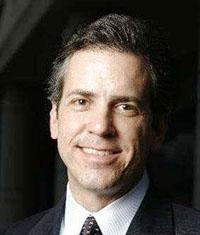 A common topic on this blog has been the power of anti-business myths within American society.
A common topic on this blog has been the power of anti-business myths within American society.
Take Enron, for example. We all know how the myth played out. Enron, which was one of the largest publicly-owned companies in the U.S., was really just an elaborate financial house of cards that a massive conspiracy hid from innocent and unsuspecting investors and employees.
The Enron Myth is so widely accepted that otherwise intelligent people reject any notion of ambiguity or fair-minded analysis in addressing facts and issues that call the morality play into question. The primary dynamics by which the myth is perpetuated are scapegoating and resentment, which are common themes of almost every mainstream media report on Enron.
The mainstream media — always quick to embrace a simple morality play with innocent victims and dastardly villains — was not about to complicate the story by pointing out that the investors in Enron could have hedged their risk of loss by buying insurance quite similar to that which Enron developed in creating their wealth in the first place.
Instead of attempting to examine and tell the nuanced story about what really happened at Enron, much of the mainstream media simply became a part of the mob that ultimately contributed to death of Ken Lay and hailed the barbaric 24 year sentence of Jeff Skilling.
Ambitious prosecutors, given wide latitude to obtain convictions of key Enron executives regardless of the evidence, gladly took advantage of the firestorm of anti-Enron public opinion to lead the mob.
Consequently, as Wall Street continues to endure massive equity write-downs that dwarf the $1.1 billion non-recurring charge against earnings that triggered Enron’s demise after the 3rd quarter of 2001, I was somewhat surprised to read this common sense analysis from NY Times columnist, David Brooks:
There is roughly a 100 percent chance that weíre going to spend much of this year talking about the subprime mortgage crisis, the financial markets and the worsening economy. The only question is which narrative is going to prevail, the Greed Narrative or the Ecology Narrative.
The Greed Narrative goes something like this: The financial markets are dominated by absurdly overpaid zillionaires. They invent complex financial instruments, like globally securitized subprime mortgages that few really understand. They dump these things onto the unsuspecting, sending destabilizing waves of money sloshing around the globe. Economies melt down. Regular people lose jobs and savings. Meanwhile, the financial insiders still get their obscene bonuses, rain or shine.
The morality of the Greed Narrative is straightforward. A small number of predators destabilize the economy and reap big bonuses. The financial system is fundamentally broken. Government should step in and control the malefactors of great wealth.
The Ecology Narrative is different. It starts with the premise that investors and borrowers cooperate and compete in a complex ecosystem. Everyone seeks wealth while minimizing risk. As Jim Manzi, a software entrepreneur who specializes in applied artificial intelligence, has noted, the chief tension in this ecosystem is between innovation and uncertainty. We could live in a safer world, but weíd have to forswear creativity. [. . .]
The Ecology Narrative is not morally satisfying. I wouldn’t bet on its popularity as a backlash against Wall Street and finance sweeps across a recession-haunted country. But the Ecology Narrative has one thing going for it. It happens to be true.
Along those same lines, this Landon Thomas/NY times story reports on how two Wall Street executives who were intimately involved in $34 billion in write-downs remain reasonably hot properties on the Wall Street employment market. The Greed Narrative apparently hasn’t caught up with those two yet, either.
But not so fast. This NY Times article reports that New York attorney general Andrew Cuomo, who replaced Eliot Spitzer as the Lord of Regulation, is currently putting the squeeze on a company that analyzed the quality of home loans for investment banks to provide evidence to prosecutors that the banks had detailed information that they did not reveal to investors about subprime mortgage risk. So, maybe that Greed Narrative still has legs after all.
But for the final word, don’t miss this Larry Ribstein post in which he exposes NY Times columnist Gretchen Morgenson’s stubborn adherence to the Greed Narrative even when it is clear from the subject of the story (in this case, the troubles of retailer Sears) that the narrative doesn’t fit.
In short, Morgenson is not one to allow the facts to get in the way of spinning a Greed Narrative morality play.
Like this:
Like Loading...
 Ever wonder how the mainstream media maintains Enron-related myths?
Ever wonder how the mainstream media maintains Enron-related myths?








